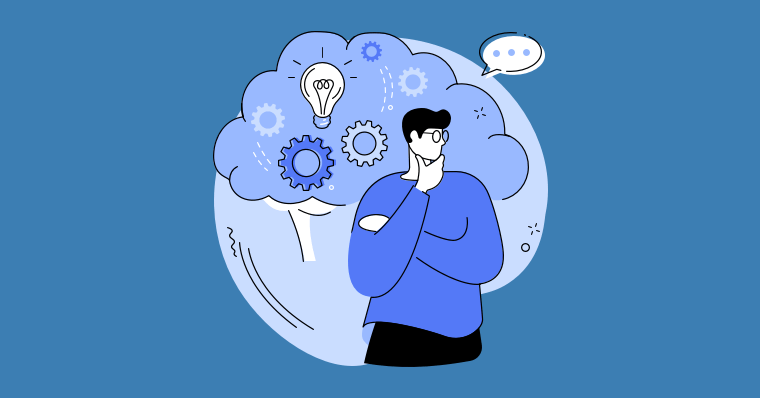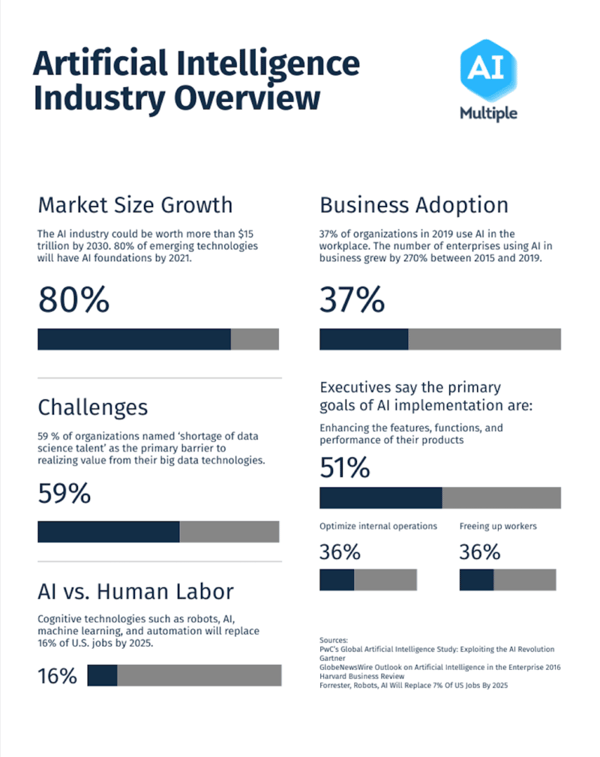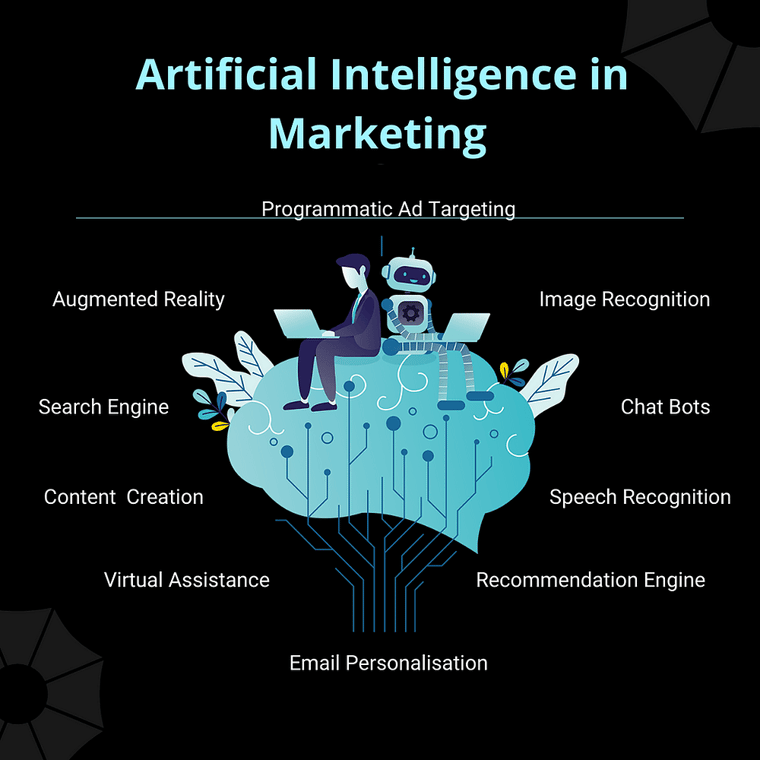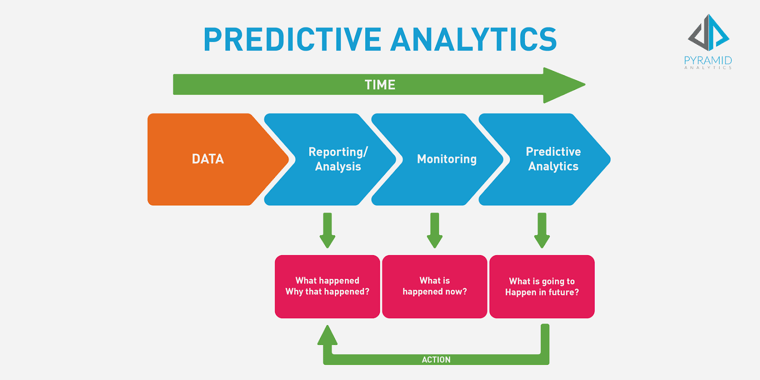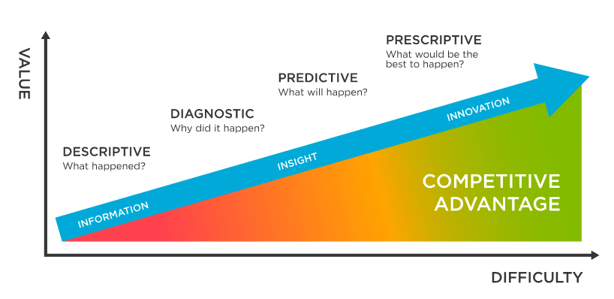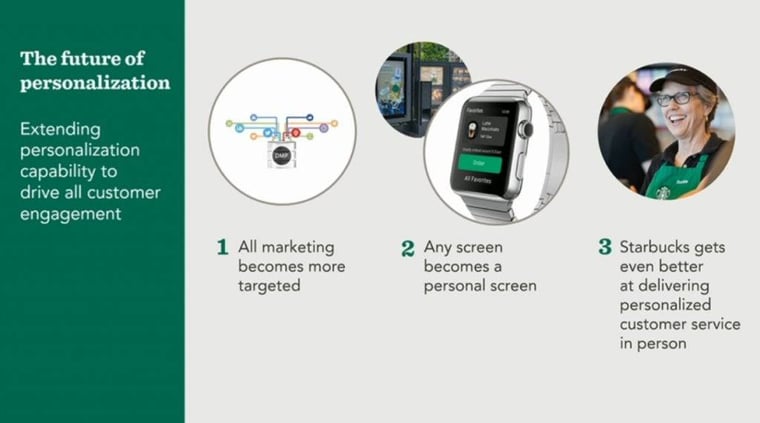Editor's Note: This post is republished with permission from MarketMuse.
Consumers are more active now than ever before. As our lives become more and more digitalised, the once passive consumer now has the freedom to order what they want, when they want. With ever-changing trends surfacing among social platforms and e-commerce booming higher than ever before on the back of the pandemic, vendor competition has never been more fierce.
Staying ahead of consumer trends is vital if you want to survive in this new e-commerce environment. Marketers need to be smart and be prepared to jump and adapt before a consumer trend has even surfaced.
Enter artificial intelligence, part of the explosive growth in technology. AI-powered marketing could be the new key to consumer-based success in the future. Using this smart technology to predict consumer trends and behaviors could set you ahead of your competitors and improve the relationship between your sales leads and your e-commerce company.
Already, 37% of the corporate world has incorporated AI into its business strategy, and the marketing industry isn’t far behind. With 80% of emerging technologies now with an AI foundation, there’s no reason not to jump on the trend.
From predictive analytics to campaign planning aids, read on to find out why AI could be the tip of the iceberg for a newly digitized future of marketing.
What’s AI Marketing?
AI marketing can be defined as “leveraging AI and machine learning to combine the insights generated through various datasets, algorithms, and models to predict future behaviors.”
Whether that is used to plan, target, or personalize, artificial intelligence can significantly transform your marketing strategy.
As you can see above, artificial intelligence can transform all areas of your marketing campaign, from consumer insight and behavior tracking to checkout and email personalization to improve user experience.
This form of virtual assistance is vital if you want to remain ahead of the competition, especially as more businesses move online post-pandemic.
While it may feel more like science fiction than reality at the moment, experts predict that AI marketing will be the future of the e-commerce industry, with global spending on artificial intelligence software expected to exceed $340 billion by the beginning of 2022.
As new forms of predictive analytics continue to improve customer-based efforts, we aren’t surprised that smart business leaders want to dip their hands into this digital phenomenon.
Predictive Analytic Models In More Detail
For those of you looking to get into the nitty-gritty, let’s look into the functions of predictive AI in more detail.
Using machine learning, AI-powered analytic software can digest historical campaign data and combine it with user behavior trends, as well as transactional data, in order to create a predictive model to aid future campaign planning and personalisation within your strategy.
There are currently three AI-generated models that can convert big data into predictive results:
The Recommendations Model
This model is all about analyzing historic data in order to recommend where there might be future sales opportunities.
Gaining insights from past purchase history, this form of predictive analytics can aid marketers in predicting consumer purchase behavior. It can suggest ways for the marketing team to improve user experience across the funnel, from initial sales lead to the checkout.
The Cluster Model
The cluster model analyzes audience segmentation and can predict their behaviors based on past purchases, brand engagement, and general data surrounding the demographic.
This model is perfect for gaining a deeper insight into your customer trends, patterns, and behavior. In fact, it is so smart that it can predict your demographic’s next move before they even jump.
The Propensity Model
This model specifically analyzes customer behavior and the likelihood of consumer action.
Predicting anything from the likelihood of disengagement or a conversion act on an offer, this model is a great tool to use if you’re looking to improve your UX design, customer journey, or your return on investment.
The Benefits Of Using Artificial Intelligence Within Your Marketing Campaign
It’s no surprise that using artificial intelligence is likely to offer a competitive advantage, but let’s take a closer look into why it’s so vital for a successful campaign.
Recent studies by Aberdeen Strategy and Research revealed that business leaders who use predictive analytics to identify customer needs are likely to see a 21% increase in organic revenue.
Read on to find out the many benefits of this marketing phenomenon.
Customer Insights
Understanding customer behavior when creating your marketing campaigns is vital if you want to see success.
Using analytic platforms such as Google Analytics and Finteza is essential for aiding in behavior predictions that could affect your marketing strategy. When incorporating artificial intelligence into the first planning stage, you’re able to segment your audiences, based on that important demographic information.
This ultimately improves the success of your campaign as you can alter the customer experience based on your predictive results. This, therefore, increases conversion rates among your audience niche and in turn your campaign ROI.
Prioritizing Sales Leads
While you may have a large demographic to serve, smart marketers know that prioritizing their sales leads will ultimately grant them more success.
Predictive analytics allow marketers to prioritize and qualify their leads, picking out those customer groups that are close to converting into sales.
Using this AI-generated aid, business leaders can devote a higher level of attention to these customers and therefore reduce retargeting spending on unlikely leads.
Experience Personalization
Personalisation is also a vital part of a successful marketing campaign. When you personalize your customer experience, you improve brand loyalty, customer retention, and general trust among your audience.
Today’s consumer likes to feel listened to, and artificial intelligence may just be the key to victory. From personalizing email marketing to introducing more conversational experiences, AI can generate diverse experiences for each customer’s needs.
With such a large online demographic post-pandemic, this is vital if you want to stay on top of your competitors.
Examples Of AI Marketing That Will Leave You Wanting More
If you’re still not convinced by the potential of artificial intelligence within the marketing world, here are some of our favorite industry examples that can give us a taste of the future.
Starbucks: A Personalized Recommendation
Coming in at number one with a demonstration of the benefits of AI personalisation is Starbucks. After creating a successful mobile app in 2016, they have since been able to extend their personalisation capabilities using their app’s customer data and predictive analytic strategies.
The clever AI-based technology stores customer purchase data and converts it into personalized marketing messages using predictive software that targets every customer’s tastes and preferences.
This form of personalization hasn’t only improved sales conversions but has made customer service a priority, increasing brand loyalty among a diverse digital demographic.
Chase: AI-Powered Copywriting
Successful creative copy that serves an entire demographic is hard to achieve conventionally. You need to know your reader and be able to write with their needs in mind. Taking steps to improve your copywriting skills is a great way to polish off your SEO and most importantly, enhance your customer experience.
The question is, how can AI take your copywriting one step further?
Chase Bank answered that question with their most recent AI-generated campaign, focused on improving and humanizing the customer experience.
After teaming up with artificial intelligence provider, Persado, Chase is currently working on personalizing their copy for each consumer, in an attempt to humanize their targeting.
It may be the first large business to introduce machine learning within their copywriting strategy, but it certainly won’t be the last.
Rebecca Barnatt-Smith
Rebecca Barnatt-Smith, a marketing executive that specializes in the future of artificial technology within the corporate world wrote this post.


